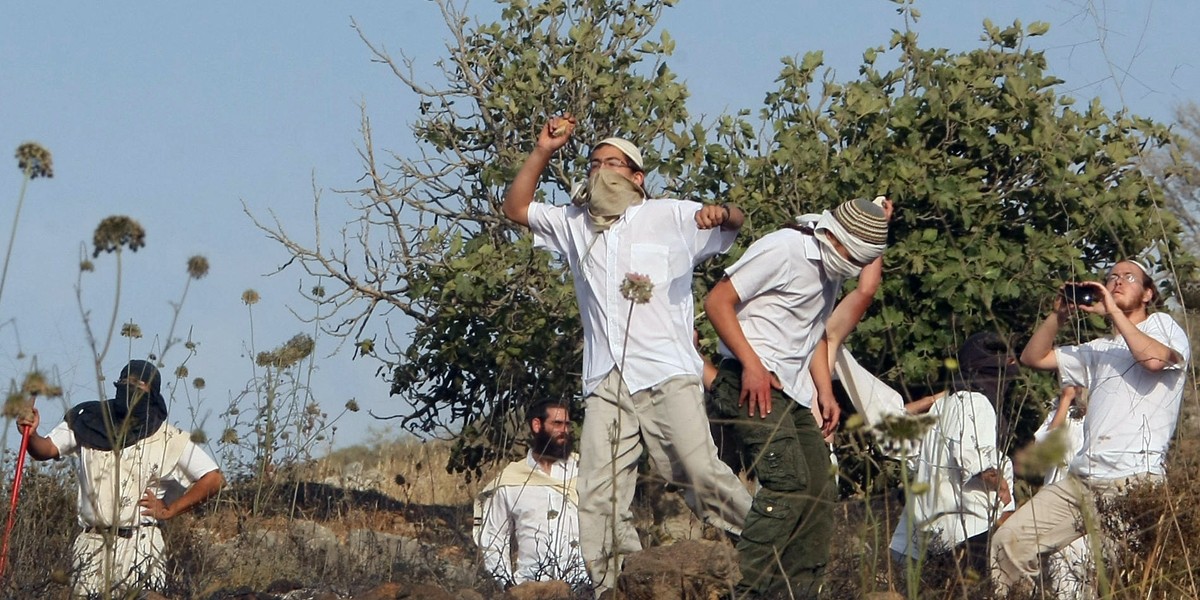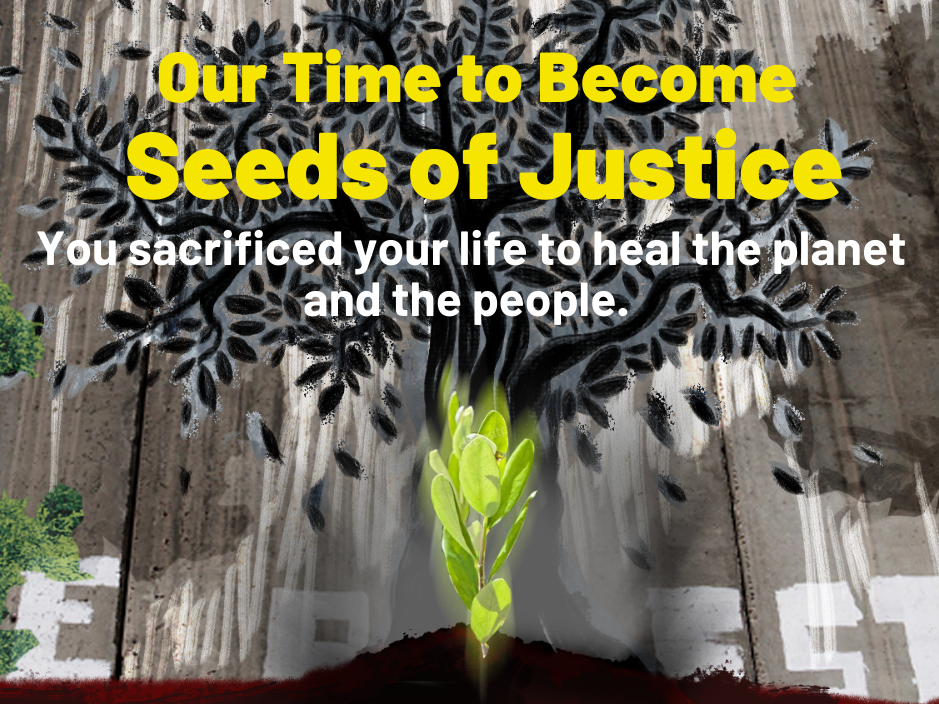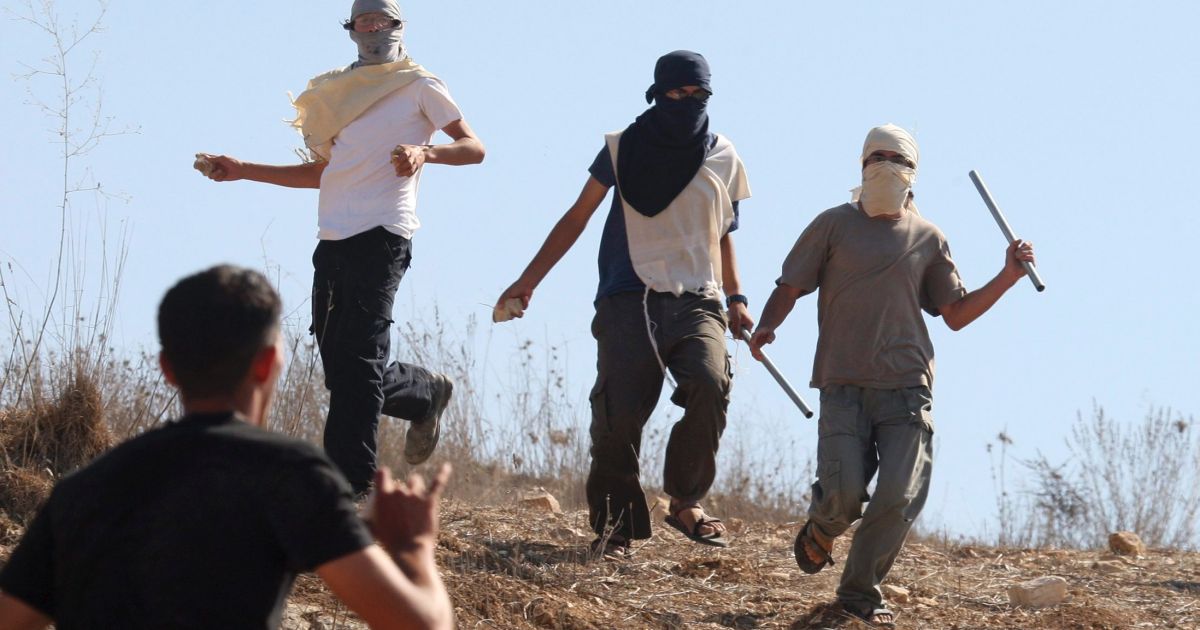An analysis of the escalating forced displacement of Palestinian communities in the West Bank since the start of the genocide in Gaza.
The Rights of Return, Reparation, Restitution, Compensation and Non-Repetition Remain the Key to Justice for the Palestinian People.
In this report, we have detailed the expulsion of Palestinian communities from Area C (in the illegally occupied West Bank), especially the Bedouin communities in the Jordan Valley and the South Hebron Hills, since the start of the genocide in Gaza in October 2023. Based on desk research and interviews in 59 communities, we have analysed how the displacement has dramatically increased. We also show that the means of forced displacement and transfer have qualitatively changed. Over the decades of ongoing forced displacement, which started in the West Bank in 1967 with Israel’s occupation of the territory, the laws Israel has imposed to advance colonization and administer its apartheid regime have been the backbone of the policy. This changed especially since October 2023. The systematic and brute violence of the state-sponsored settler militias has now superseded the apartheid laws in their effectiveness. Palestinian communities had developed a strategy of delay and survival in the face of ongoing demolition orders, evacuation orders, denial of access to water, education, health care and restrictions of freedom of movement carried out by the Israeli military.
Settler violence in the West Bank began with the first settlement or settler colony being established and is continuing Israel’s policy from during the Nakba, when military and Zionist militias worked hand in hand to execute the first mass expulsion of Palestinians from their homes and lands and destroyed at least 530 Palestinian villages and towns. Yet, since the beginning of 2023, Israel has been working relentlessly to further finance and arm the settler population; integrating settler militias it uses as a paramilitary force into the state structure. This has been reinforced since the start of the Israeli genocide in Gaza. The scale of the pogroms carried out by the settler militia, supported by the Israeli military, are unprecedented in scale within the occupied West Bank. They have proven far more effective and Palestinian communities are still struggling to find ways of resistance against this onslaught.
Communities report losing homes, agricultural land, and livestock—key pillars of their economic survival—while enduring harassment, brute violence and restricted access to essential resources like water and grazing lands. Testimonies illustrate the coordinated nature of these efforts, with settler militias and regular military forces working in tandem to pressure communities into abandoning their lands. Gendered violence, particularly targeting women and children, and the systematic destruction of economic infrastructure deepen the psychological and material toll on displaced Palestinians. The destruction of property, assaults on individuals and restrictions on access to resources, especially water, create intolerable living conditions for Palestinian communities. Displaced communities face fragmentation, economic hardship and report being neglected by Palestinian and international institutions.
It is important to understand Israel’s policy of forced displacement within the framework of what UN Special Rapporteur on the Palestinian Occupied Territories, Francesca Albanese,calls “colonial erasure”. She explains in her October 2024 report to the UN General Assembly how
“Since its establishment, Israel has treated the occupied people as a hated encumbrance and threat to be eradicated, subjecting millions of Palestinians, for generations, to everyday indignities, mass killing, mass incarceration, forced displacement, racial segregation and apartheid. Advancing its goal of “Greater Israel” threatens to erase the Indigenous Palestinian population.”
We outline how displacement or erasure is the central goal of Israel’s colonial project, whether Israel employs genocide, apartheid, illegal occupation, ghettoization (fragmentation/segregation) or other means to further this goal.
Israel’s construction of the apartheid Wall was one of its largest projects of ethnic cleansing since the 1967 occupation. Israel’s horrific genocide in Gaza, which initially aimed, and may still aim, at the mass transfer of the Palestinian population towards the Egyptian Sinai, is now, among others, aimed at ethnically cleansing the entire part area north of the Netzarim Corridor of Palestinians. In December 2023, the then Defence Minister of Israel, Yoav Gallant, predicted that
“when what the IDF did in Gaza becomes clear, that will also be projected on Judea and Samaria [West Bank]”.
Under the Rome Statute of the International Criminal Court (ICC) forced displacement is a crime against humanity in itself. It is also part of the crimes of genocide, apartheid and persecution, and a war crime.
The question of forced displacement and the rights of Palestinian refugees and internally displaced to return/repatriation, restitution of property, compensation and non-repetition/satisfaction must be brought to the center of the debate and is key to any genuine effort to end Israel’s crimes.5 Not only because it concerns the elementary rights of the majority – and an ever increasing number – of Palestinians, many of who by now have been displaced multiple times. Only by ending and punishing Israel’s policy of forced displacement as the common denominator and ultimate aim of its policies can justice for the Palestinian people be achieved and international law upheld.
The efforts by the US and other states allied with Israel to impose sanctions on individual settlers or settler organizations are not wrong per se, but consciously miss the forest for the trees, and insofar as they are de facto used as a ploy to shield Israel from accountability and divert from policies that are aimed at addressing the root cause of Israel’s crimes. Similarly, as we argue below, the idea that ‘differentiating’ between dealings with Israel and the settlement enterprise is a viable, let alone sufficient, policy to address Israel’s multiple international crimes is deceptive.
The framework of the Oslo Accords that divided the West Bank into three separated territories has provided the blueprint for subsequent ethnic cleansing. “Area C”, which makes up 60% of the West Bank and was placed ‘temporarily’ under full Israeli control as per the agreement, became the focus of Israel’s displacement policies. The building of the Apartheid Wall in 2002, roughly along the lines of Area C was another step to implement the ethnic cleansing of the West Bank and reduce the Palestinian population to isolated ghettos. The 2020 Deal of the Century between then-US President Donald Trump and Israel’s Prime Minister Benjamin Netanyahu aimed to officialize the de facto annexation of Area C. The same “deal” also included plans to displace the population of the Gaza Strip to Egypt.
With another Trump administration on the way, Israel is already preparing for another drive towards the de jure annexation of the West Bank, or large parts of it.9 This inevitably means even further escalation of forced displacement.
The UN Special Committee to Investigate Israeli Practices affecting the Human Rights of the Palestinian People and Other Arabs of the Occupied Territories has warned that
“The multiple violations of international law by Israel in its war on Gaza; its apartheid system of injustice in the occupied West Bank, within the broader context of its decades-long occupation-cum-annexation of Palestinian and Syrian Golan territories; and its ongoing defiance of binding Security Council resolutions and orders of the International Court of Justice, gravely weaken the international rules-based system. Obligations established under international law to limit the barbarity of war and protect human rights, including the right to self-determination, are under threat by Israel’s violations and by the fact that other States are unwilling to hold Israel accountable and continue to provide it with military and other support.”10
This echoes the calls by the Palestinian BDS National Committee, which leads the global BDS movement, when it affirms that:
“Strategic and principled grassroots and civil society action—from city councils, trade unions, and institutions worldwide—has never been as essential as it is today not just to end the genocide, but also to save the world from an imminent fall into a dystopian ‘might makes right’ era.
“May this return to power of the US far-right and the daily escalation of Israeli crimes shock every person of conscience into action, into organizing unprecedented peaceful resistance to injustice, oppression, racism and fascism, from the US to Palestine, from Congo to Sudan, and everywhere in between.”
International action is an obligation, not a choice
As shown in this report, UN Human Rights experts of the Special Procedures, UN Commissions, the UN Human Rights Council, the UN General Assembly, as well as independent international law experts have already outlined the basic obligations of Third States in the face of Israel’s crimes of atrocity, crimes against humanity and war crimes. States and non-state actors have to take urgent action.
Below we are listing the core lines of action:
State obligations:
- Targeted Sanctions: Comply with obligations under international law and UN resolutions by imposing economic and diplomatic sanctions on Israel and exclude companies involved in Israel’s illegal occupation, forced displacement, apartheid and genocide. Suspend trade agreements until Israel complies fully with international law.
- Ensure Human Rights Due Diligence Compliance: Enact laws requiring businesses operating in or connected to the occupied Palestinian territories or Israel to conduct robust Human Rights Due Diligence (HRDD), aligned with the UN Guiding Principles on Business and Human Rights to ensure they end without delay, or avoid their complicity in Israel’s crimes.
- Investigate and punish Private Sector Involvement: Expedite investigations into the role and responsibility of private entities in Israel’s illegal occupation, forced displacement, apartheid & genocide and, where appropriate, start prosecutions under domestic criminal law or universal jurisdictions.
Obligations of Non-state actors
- Avoid/end complicity: Private entities must implement HRDD frameworks based on the UN OHCHR principle that in cases of possible grave abuses of human rights, companies are expected to respond ‘as a legal compliance issue’ and to cease without delay any activity or cut financial ties, within their operations or supply chain, that could contribute directly or indirectly to ongoing crimes committed by Israel.
- Enhance Transparency and Accountability: Establish mandatory reporting mechanisms for companies to disclose their operations, investments, and partnerships related to Israel’s illegal occupation and international crimes.
- Support Reparative Efforts: In addition to ending complicity, contribute to reparations by funding rebuilding efforts for displaced communities and ensuring compensation for economic losses linked to private sector operations.
Obligations of the United Nations and International Multilateral Organizations
- Promote the rights of Palestinian refugees to return, reparation, compensation and non-repetition: Ensure the rights of Palestinian refugees are addressed centrally in reports, resolutions and policy actions as a conditio sine qua non for the respect of international law.
- Suspension of Israel from the UN: Israel’s admission to the UN was conditioned upon the implementation of the relevant UN resolutions 181 and 194 regarding the rights of the Palestinian refugees to return and receive reparation. In light of Israel’s continued denial of these rights, and the ongoing policy of forced displacement of ever more Palestinians from their homes, the breach of endless UN resolutions and ongoing international crimes, Israel must be suspended from the UN, just as apartheid South Africa was in 1974.
- Sanctions: UN bodies and agencies are to work to ensure compliance of states with the calls for sanctions of the UN General Assembly and the UN Human Rights Council and to actively monitor compliance. UN bodies and agencies themselves must install stringent mechanisms to ensure they do not recognize, aid or assist Israel and complicit businesses and institutions in their crimes against the Palestinian people.
- Create and Maintain Comprehensive Registries and Databases: The United Nations is to expand the mandate of its specialized agencies, UNRWA, UNROD and the UN OHCHR’s efforts to develop a database of business involved in Israel’s settlement activity.
- UNRWA is to be protected against attacks – adequately supported, including through increased funding and a UNGA vote defining a mandatory core budget for UNRWA independent of voluntary contributions;- and asked by the UNGA to change its eligibility criteria to include all Palestinians displaced during Israel’s 76 years of colonial policies of forced displacemen so that their claim to rights can be accounted for.
- UNROD is to be mandated to expand its effort of registration from damages and losses caused by Israel’s construction of the Wall to the damages and losses caused by any aspect of Israel’s illegal occupation, apartheid or genocide.
- The UN database is to be mandated to expand its efforts beyond involvement in Israel’s settlement enterprise. In accordance with the ICJ ruling of July 18 and January 26 2024, it should include business involved with any aspect of Israel’s illegal occupation and the crimes of apartheid and genocide. Transparency of its operations has to be guaranteed. It is also to be upscaled to be able to gather at least a significant number of complicit corporations in the database. Such a resource would serve as a foundation for future reparative justice efforts and guide advocacy campaigns.
- Ensure Reparative and Legal Accountability: States should make their domestic courts accessible to Palestinians based on universal jurisdiction.International organizations, including the International Criminal Court (ICC) and UN bodies, must prioritize the investigation of crimes against the entire Palestinian people, including complicity by private entities. They should provide legal, financial, and technical assistance to Palestinians pursuing justice in international or domestic courts. Advocacy efforts must also emphasize the need for reparative justice, with frameworks informed by registries and research on displacement-related losses.
- Promote Global Civil Society action: International organizations should amplify solidarity campaigns, including the Boycott, Divestment, and Sanctions (BDS) movement, targeting businesses profiting from Israel’s colonial-apartheid regime, illegal occupation and genocide.
Contents
| Introduction |
| Rapid and massive displacement |
| Displacement in the West Bank before the Gaza genocide |
| Displacement in the West Bank during the Gaza genocide |
| Erasure as a strategy: Economic Devastation, Gendered Impact, and Long-Term Consequences |
| Israel’s International Crimes and Violations of International Law |
| Private Sector Involvement in the Displacement |




